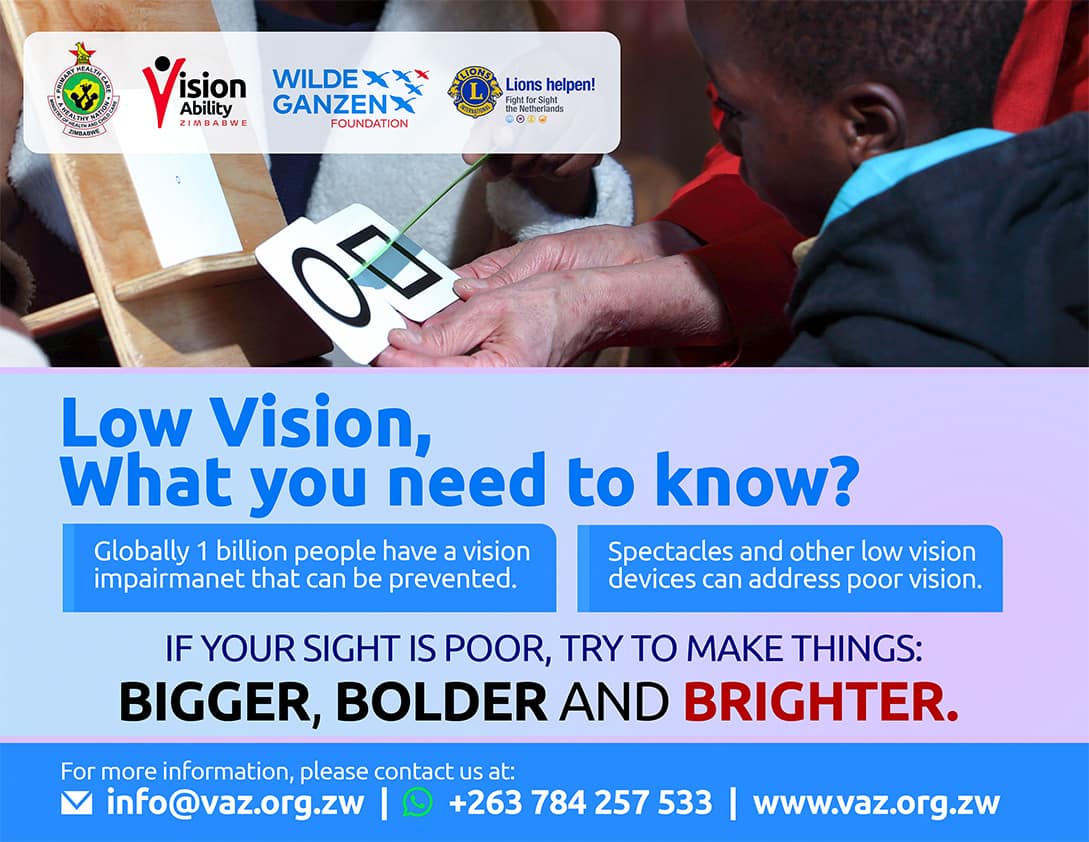A person is said to have low vision if they find it difficult to perform everyday tasks despite using eyeglasses, contact lenses, having medication or undergone surgery. Unlike a person who is totally blind, a person with low vision has some useful vision that can be improved with optical devices. Low vision becomes noticeable when it begins to interfere with the performance of everyday activities and in young children negatively impacting motor, language, emotional, social, and cognitive development with lifelong consequences. Low vision in young children has negative and sometimes irreversible impact on children’s psychological, educational, and social performance, which can persist into adulthood and affect individuals’ quality of life. Helping someone with low vision involves understanding their unique needs and providing appropriate support.


